With Smith in the ranks Television now set forth on a period of frantic song writing, largely focusing on pieces making full use of the twin guitar set-up; a joint residency with Patti Smith at the CBGBs also gave the band a chance to hone their songs for live setting. 'Marquee Moon' was extended to almost the 10-minute mark and 'Poor Circulation' also broke the 7 minute barrier. Other new songs that were developed included 'Breakin' in my Heart', 'Foxhole' and the 10-minute 'Kingdom Come'. Another expansive song that took form during this period was the jazzy 'Little Johnny Jewel'. "Now little Johnny Jewel He's so cool He had no decisions Just tryin' to tell a vision." "To understand Johnny," explained Verlaine to 'Crawdaddy'. "You should think of William Blake. He was the same kinda guy. Johnny Jewel is how people were maybe 200 years ago. Nowadays we have to decide what we want to buy in grocery stores, what job to take, what work to do. But not for Johnny. For him, it's a freer state, and that's what my music is looking for." Television soon realised that the demos the band had made for Island weren't going to amount to any sort of concrete record deal so they decided to follow Patti Smith's lead and record their own independent single. The band set-up in Patti Smith's rehearsal loft and borrowed a 4-track recorder from Smith's drummer Jay Dee Daugherty. The band eventually decided on the least obvious track for the single, the 7 minute rough but seductive 'Little Johnny Jewel' which had to be spread over both sides of the 45rpm single. Richard Lloyd wasn't happy with the decision as he thought the song had "the least chance and didn't represent the band" and promptly left the band. Verlaine didn't hang around long and quickly recruited Rocket from the Tombs guitarist Peter Laughner to fill in. Laughner's tenure in the band was remarkably short lived. After flying to New York for rehearsals he was in the ranks for just three days before Lloyd wanted to come back. When Lou Reed asked Verlaine why he had put out 'Little Johnny Jewel' as it was obvious it wasn't a hit, Verlaine reportedly replied: "What band playing in a bar in New York, issuing their own single, is gonna have a hit?" For Verlaine, it seemed much more appropriate to put out something that was representative of the band live. 'Little Johnny Jewel' was released on Ork Records on 19 August 1975. The band had been attracting record label interest since autumn 1974 with general opinion tipping Patti Smith's label Arista to sign the band as Smith had recommended them to the then label's president Clive Davis. Although Davis was initially hesitant he let the band record a demo. In two days, working for 14-hours a night, the band recorded about five songs which included 'Torn Curtain', .I Don't Care', 'Guiding Light' and 'Oh Mi Amore'. The band though signed to Elektra, the label that had included the Doors, MC5 and the Stooges, in July 1976. What seems to have swung it for Elektra was that Verlaine could produce the band's debut album - but only in conjunction with a respected recording engineer. Verlaine plumped for Andy Johns who had worked on the first four Led Zeppelin albums as well as the Rolling Stones' 'Goat's Head Soup'. Elektra though were somewhat unsure and only signed the band on a one year, one record deal with the option to pick up others at a later date. Verlaine, at least initially, seemed happy with the label: "Elektra had the first great rock engineers. It looked like somebody there really cared about the sound." The eight tracks that actually made it onto the finished album were largely recorded live at New York's A&R Studios in three weeks in November 1976 with even a couple, most notably the song 'Marquee Moon'actually being recorded in one take with bits of echo and digital delay being added later. Verlaine, apparently, had a very clear view of how he wanted the record structured and only a few songs, such as 'Double Exposure', '"Kingdom Come' and 'Oh Mi Amore' were actually rejected. The ending of 'Marquee Moon' had to be edited so it could fit on the vinyl without losing anything in sound quality. This actually appealed to Lloyd as he told 'New York Rocker': "I think it's mood-evoking in a way that the voice starts to come in and then just fades away. It gives you the conception that the song never really ends." Released on 8 February 1977 'Marquee Moon' would mark the zenith of the new wave bands in New York and be widely regarded as a significant classic album. Even now when some of the songs have lost a little of their shine, the album still dazzles. The word seminal (with all its meanings) really does apply here. The 'NME' writer Nick Kent in his two-page review at the time was ecstatic: "They are one band in a million, the songs are some of the greatest ever." 'Melody Maker' thought that the band were "likely to play some of the most astounding music of our time." 'Sounds' was also impressed making it their album of the year and thought it "an obvious, unashamed classic". In the States too, the reviews positive with 'The Village Voice' calling it: "The most powerful and passionate rock to come out of anywhere in a dog's age." The album mixed early frenetic songs like the jagged 'Friction' and 'Venus de Milo' complete with duelling guitars with the newer 'Guiding Light' and the dramatic 'Torn Curtain' and not forgetting the tour de force that is the title track. The use of twin guitars is both graceful and serene as well as forceful and frenetic. It was a staggering achievement and it has become universally acclaimed as one of the best albums of the modern rock era. The twin, jagged, serpentine guitars fought and interplayed alongside Verlaine's Symbolist-poet aesthetic. "It's basically an electric guitar record," asserted Verlaine to 'Crawdaddy' in 1977. And 'Mojo' didn't disagree, voting the album one of the greatest guitar albums of all time earlier this year. The album quickly took off in the UK and a tour was quickly cobbled together as well as Elektra putting out a 12" single of 'Marquee Moon' (which made the Top 30). Before the tour could get under way the band went out as the support band to Peter Gabriel's first US solo tour in March and April 1977 - which wasn't a success. The audiences didn't take to Television's new wave style, who had come to hear the prog-rock ramblings of the ex-Genesis singer." Basically, the tour was a no money thing," remarked Verlaine to 'Trouser Press' in 1978. "The band wasn't badly received but being the opening act you're playing for somebody else's audience so they're bound not to be really into you." In fact, the album didn't really make any sort of impact in America despite a positive critical response. It failed to make the US Top 200, selling less than 80,000 copies. The problem, in part, was the age old one of the failure of a major label to grasp the essence of such a band as Television. To the label heads the band was just part of the burgeoning new wave/punk scene and they didn't really know how to promote such an act. "[The label] would send cassettes of new bands," told Verlaine to 'Rolling Stone'. "They'd marked one, 'You'll like this' - it was the Cars. We listened to it and thought, 'Oh shit, this is sort of Television-esque, but commercial. All they'll care about is the Cars and they'll stop putting their hopes on us,' not that they had much hope to begin with." Once Elektra discovered how poorly it had sold in America they effectively wrote it off as a bad debt and after the failure of the support slot to Gabriel instead of sending the band out on a lengthy tour the group were left in New York. Instead of kicking around the city Verlaine preferred to start work on the second album. Verlaine was keen to explore the possibilities afforded by the use of new technology and recording techniques. Essentially he wanted to experiment rather than use up the store of songs that hadn't made it onto the debut. "The whole album was like a series of moods," explained Verlaine. "I remember trying to weird up 'I Don't Care' [renamed 'Careful' on the album] in the studio. I told the engineer that I wanted to sing it from across the room. I wanted the mike 15-feet away. He got really annoyed." According to Clinton Heylin, the recording at the Record Plant was an arduous affair lasting most of September and October as well as half of November and December with the final mixing taking place in the first week of February 1978. The engineer this time was John Jansen (who had previously worked on Supertramp and Meat Loaf), after Blue Oyster Cult's Alan Lanier had recommended him to Verlaine. "Some things that got on are first takes and some are fiftieth takes," explained Verlaine to 'Trouser Press'. "Some guitar solos were just shot off and they sounded good, others we worked on a little more." Recording was a slow process with the first sessions producing just two tracks: the Byrdsian 'Days' and 'Glory'. Verlaine, however, couldn't capture the sound he was after. Verlaine denied that the process was a struggle to 'ZigZag' in July 1978. "We took the time to do it because we wanted a better sound quality" Verlaine told John Tobler. "Which takes a lot more time to get, and a lot of the stuff was arranged in the studio. I didn't have time to rehearse". It didn't help either that Lloyd was in hospital during the recording. Dental work that he'd had done was faulty and caused a heart ailment (sub-acute bacterial endocarditis) which meant he had to be on intravenous antibiotics for five weeks To compound matters the band also fell out with its management company Wartoke. "It wasn't basically mismanagement" said Lloyd diplomatically. "But just incorrect management. There are some issues that might look detrimental to the management company if they were brought to light." Verlaine was less charitable, saying: "They ripped us off." While the exact reasons never came to light due to the settlement deal the band arranged with the company one of those issues was over some missing money allegedly owed to the band for their European tour. 'Adventure' suffers from that age old problem of an artist spending, effectively, years on their first album and spending months on the second. While never reaching the wonderful heights of their debut it still manages to excite and doesn't deserve the poor critical reception it received on its release in 1978. Songs like the seven minute 'The Dream's Dream' as well as the violence of 'Foxhole' and the Ventures-influenced 'Careful' stand out but lack that spark of intuitive interplay that 'Marquee Moon' captured. On display though is a warmth and a smoothness that, with the years, has become more appealing. The album largely failed to produce any great keystone songs that the album could focus around - it was just a collection of pretty reasonable songs. It was inevitably overshadowed by the majestic 'Marquee Moon'. Once you've written one of what is widely regarded as one of the greatest albums it's pretty difficult to top that. To many critics they were seen as last year's model and gave the album a good pasting. Elektra didn't help matters either. A tour of England was organised to promote the record but they didn't bother to release it until after it has finished. In effect, it wasn't given the support required. The album still managed to reach number seven in the UK charts. "They [the label] gave us tour support" complained Verlaine to 'New York Rocker' in September 1979. "But there was nothing in terms of letting people know about the record. Next to no advertising." According to Verlaine the label didn't know how to market the band at all, so to avoid doing it wrongly, they didn't bother to do anything. As if to prove a point Elektra then sent the band on a coast-to-coast tour of America. For those people that managed to see the band apparently they had never played better and bootlegs exist of the Portland and San Francisco gigs (the live album 'The Blow Up' was taken from the New York show at My Father's Place which was also originally bootlegged as "Arrow"). Songs like 'Little Johnny Jewel' and 'Marquee Moon' were extended like somesort of John Coltrane exploration, usually lasting around 15-minutes and the guitars battled it out. Listening to the songs on the double live album it's easy to see where bands like the Strokes got most of their ideas from. The version of 'Little Johnny Jewel' is simply dazzling, 'Friction' is all sharpened knives and their closing version of the Rolling Stone's 'Satisfaction' disproves that the band took themselves far too seriously and were humourless. The album largely captures the excitement of the band as well as displaying Verlaine and Lloyd's skills. Verlaine told 'The Bob' in 1993 that he really liked the record but thought the recording was "crap." He, however he told Hendrik Gelder that it "is the best documentary of the band." Ironically, while the band were at their height of their powers they were stuck in quicksand, not only getting nowhere against the indifference of the public but also slowly sinking too as Television was evolving into the Tom Verlaine band. Lloyd was becoming increasingly dispirited with not being given a more creative role as the dominating Verlaine's decisions were final. After the split Lloyd is reported to have stated: "I don't think we could work together again. I am not going to let anybody be in control of my life the way he wanted to be in control of my life." Verlaine too was dispirited over how a band that had recorded a seminal record and been an inspirational group to so many bands hadn't got anywhere? As well, at the time, he wasn't too keen on Lloyd either: "It was easier working alone than with Richard" he apparently said. Although the signs were there it seems that the actual demise of the band came as something unexpected. "Me and Lloyd and Fred were walking somewhere one day" revealed Verlaine. "And I just said: 'God I really want to do something else'. And Lloyd said something that really surprised me: 'Yeah, maybe we should have a change.' And that was sort of it." Lloyd did recollect a story to 'Select' reporter David Cavanagh where the band all went to a Chinese restaurant to say au revoir but everyone got drunk and started throwing the food around. Unfortunately, none of the other band members could remember such an event. The band put out a press statement that, in part, read: "There was a full moon on the night we broke up. Moby Grape broke up on a full moon so we wanted to as well." Not everyone was sad to see the demise of the group as punk fanzine 'Swoon' proclaimed: "The Grateful Dead of the new wave have retired at last, thank God!" The band has had a lasting impact on generations of musicians that followed afterwards. Siouxsie and the Banshees covered 'Little Johnny Jewel', Echo and the Bunnymen attempted 'Friction' and even the unlikely Kronos Quartet had a go at 'Marquee Moon'. Other bands that have also paid tribute to Television include U2, REM (who covered 'See No Evil'), the Cure and the Smiths as well as the Fall, Sonic Youth and Hüsker Dü. And that's just the tip of the iceberg. The influence of the band has been felt on the likes of Lloyd Cole and the Commotions (who covered 'Glory') to former Minuteman bassist Mike Watt frequently adding 'Little Johnny Jewel' to his live concerts The story doesn't end there though. After years of solo albums from Verlaine and a couple from Lloyd (who spent a lot of the intervening years battling problems with alcohol and drugs) Television officially reformed in November 1991 - although Verlaine had given some "serious thought" to calling the group a different name due to the aura surrounding it - after a period where all four members had been just been jamming to see what would happen. "It was important to see if the energy was still there," Lloyd told 'Musician'. "But after 20-minutes of playing in the rented space it was very evident. It wasn't like anybody was coming out of mothballs." According to that article by Scott Isler though the idea of a Television reunion had been muted as far back as the late 1980's. Lloyd's then-manager Jim Fouratt tired to get the group back together, but Lloyd asked that Verlaine did not take credit for everything in terms of publishing and that he was given the opportunity of singing a couple of songs live. Verlaine, according to Isler's account, flatly refused. Inevitably, a reunion was eagerly anticipated and welcomed. Even by the members of the band. Back in 1992 Verlaine told this writer: "It's been a lot of fun. A lot more fun than I thought it would be because everyone plays better than they used to. We just wanted to see how it would work out. We figured if it works out we could maybe do a record, the old spirit's there though." To test the waters the band embarked on a European tour of the festivals, playing most notably Glastonbury. The band were pleased enough with the results to go into Sorceror Sound studios for 7 or 8 weeks to record an eponymous album via Capitol, which was released on 12 September 1992. Some of songs that appeared stemmed from those initial jam sessions. David Cavanagh in Select called the album "superb" describing it as being like the "bones of 'Flash Light' [Verlaine's 1987 solo album] crossed with the soul of 'Marquee Moon', plus some weird film noir swingin' stuff." Lloyd simply described it as being packed with "differentness". 'Television' is still a remarkable record, if perhaps the weakest of the three studio albums. Television's hallmarks of foiling guitars, adventurousness, charm and sheer beauty are still present which twist and turn before taking off on an entirely different plane. Songs like 'Call Mr Lee', 'The Rocket' and '1880 or So' still manage to whip up a storm of metallic, delicate beauty but overall it lacks the spellbinding charm of earlier efforts and the songs 'Shane, She Wrote This' and 'No Glamour for Willi' are rather bland fillers which sees the band simply going through their paces. In short, while there is exquisite guitar playing the songs just aren't memorable in the way that 'Friction' or 'Marquee Moon' are. While relations between the band members were apparently better than they originally were the reformation didn't last, although perhaps it wasn't meant to: "Probably not," Verlaine told Cavanagh. "We never were. We're a band of the present. We're an eternal present kind of vibe. As peculiar as it sounds, I've always thought that we were a pop band. You know, I always thought 'Marquee Moon' was a bunch of cool singles. And then I'd realize, Christ, this song is ten minutes long with two guitar solos." The group once again went into hibernation, only regrouping after nine years in 2001. The band was picked by David Bowie as part of his line-up for the 'Meltdown' festival at London's South Bank and played a handful of European dates. At some US gigs in 2003 a live CD of the band was on sale called 'Live at The Academy NYC 12.4.92' although now is already a rarity and apparently unavailable. A live recording, 'Live at the Old Waldorf 1978' has been released on Rhino which was bootlegged from their San Francisco gig on 29 June 1978 and released, unofficially, as 'Live in San Francisco' on the Italian Four Aces label. As well as that Rhino has also re-released remastered and expanded versions of 'Marquee Moon' and 'Adventure'. Their debut album now comes with alternate takes of 'Friction', 'See No Evil' and the title track plus the full version of 'Little Johnny Jewel' and a previously unreleased instrumental. "Adventure" now includes the song of the same name that was recorded as part of the sessions but never included on the album, an early version of 'Glory' and two alternate versions of 'Ain't That Nothin'. In those two bouts of inactivity many groups have come and gone. Their "careers" coming and going while the four members of the group were doing other things. "We are" Lloyd told 'The Philadelphia Inquirer' in March this year " completely out of the capitalist marketing thing. Lots of bands say they don't care, but Television is the only one I know that truly doesn't care." Fortunately lots of people do care.
Picture Gallery:-
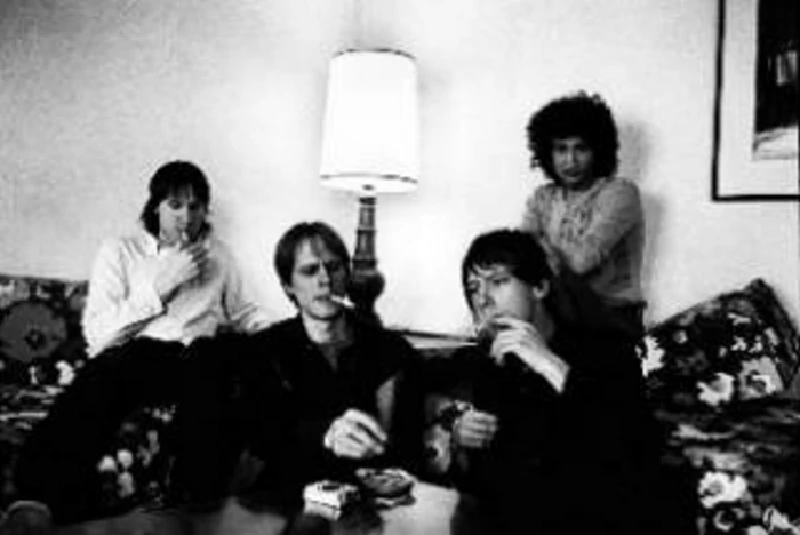
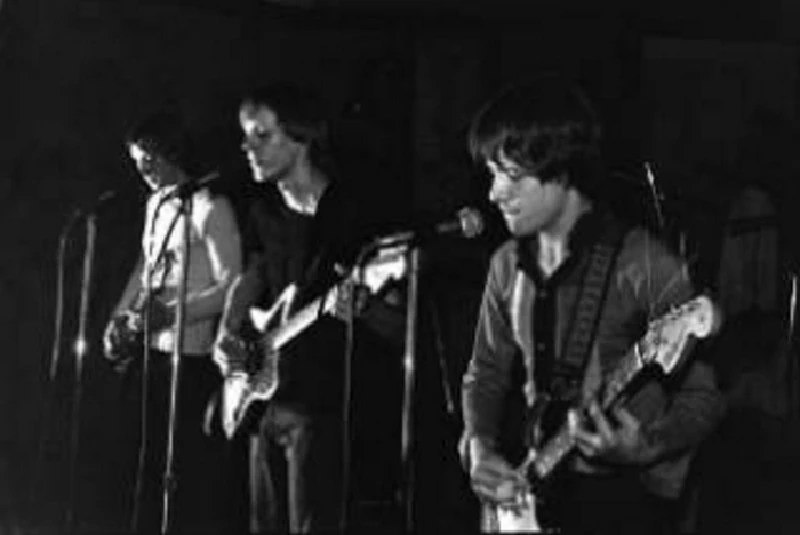
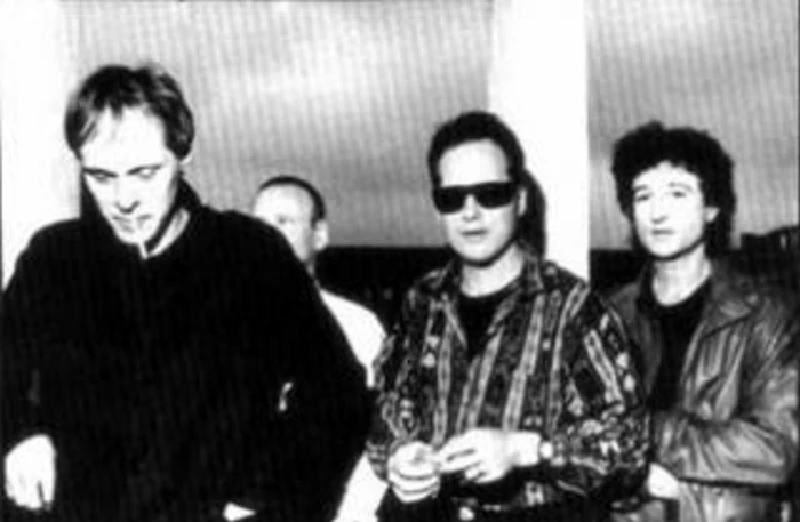
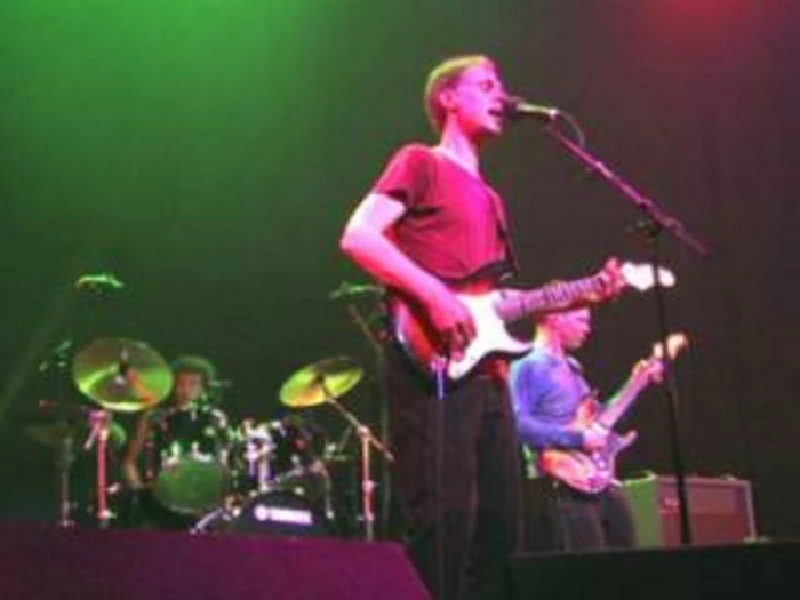
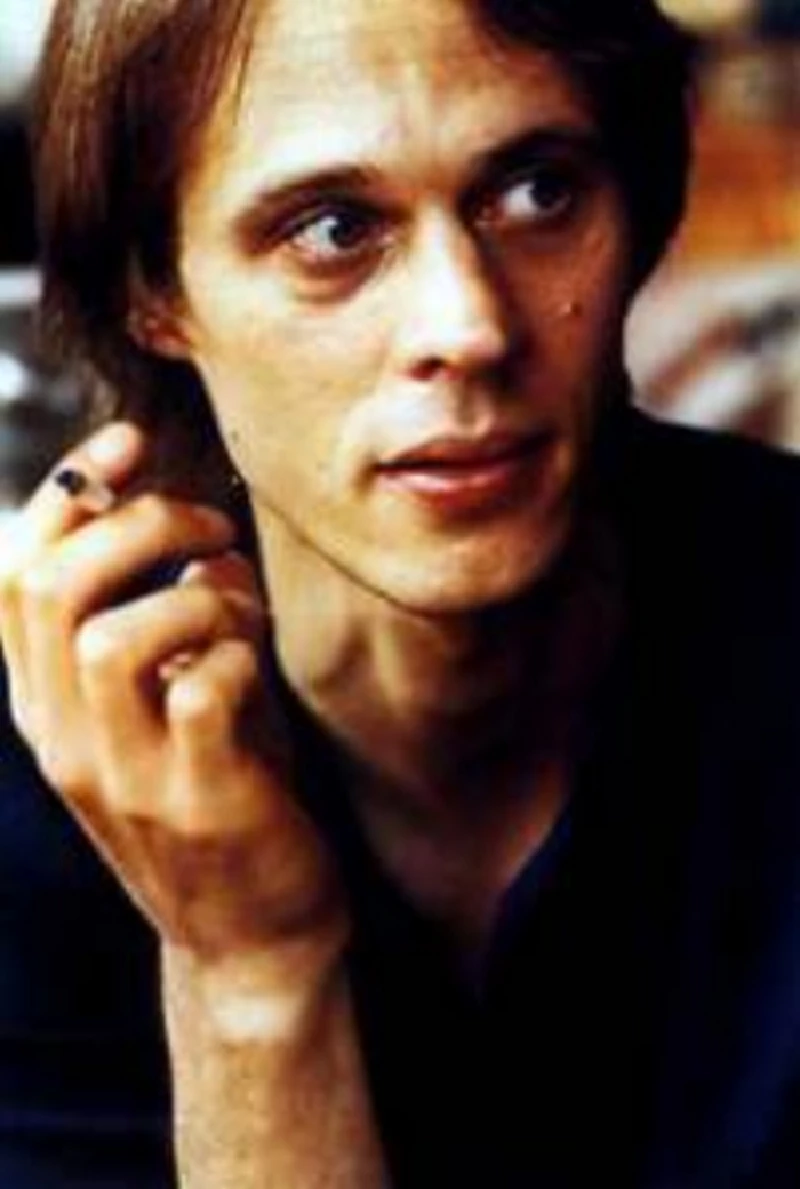
intro
In the second part of our extensive profile of the New York punk group Television, Jon Rogers writes about the recording of the band's seminal 1977 masterpiece, 'Marquee Moon', the group's dissulution and its subsequent reformations
live reviews |
|
Edinburgh Liquid Room, 17/6/2002 |
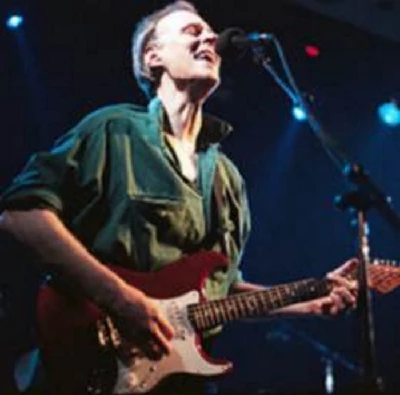
|
| In what was their first Scottish show in twenty five years, there was bound to be an element of mystery about Television's gig at the Edinburgh Liquid Room. John Clarkson, however, goes away more confused than before and with decidely mixed feelings |
features |
|
The Drug of the Nation : Part 1 (2003) |
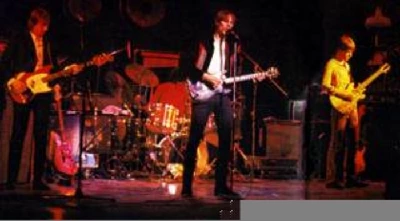
|
| In the first part of a definitive two part feature on the influential 70's group Television, which we are running concurrently this month, Jon Rogers examines their early years on the New York punk scene |
most viewed articles
current edition
John McKay - InterviewCathode Ray - Interview
Robert Forster - Interview
When Rivers Meet - Waterfront, Norwich, 29/5/2025
Spear Of Destiny - Interview
Fiona Hutchings - Interview
Carl Ewens - David Bowie 1964 to 1982 On Track: Every Album, Every Song
Chris Wade - Interview
Shrag - Huw Stephens Session 08.12.10 and Marc Riley Session 21.03.12
Brian Wilson - Ten Songs That Made Me Love...
previous editions
Heavenly - P.U.N.K. Girl EPBoomtown Rats - Ten Songs That Made Me Love....
Manic Street Preachers - (Gig of a Lifetime) Millennium Stadium, Cardiff, December 1999
Allan Clarke - Interview
Oasis - Oasis, Earl's Court, London, 1995
Barrie Barlow - Interview
Beautiful South - Ten Songs That Made Me Love...
Pixies - Ten Songs That Made Me Love...
Chuck Prophet - Ten Songs That Made Me Love...
Dwina Gibb - Interview
most viewed reviews
current edition
Peter Doolan - I Am a Tree Rooted to the Spot and a Snake Moves Around Me,in a CircleVinny Peculiar - Things Too Long Left Unsaid
Garbage - Let All That We Imagine Be The Light
Vultures - Liz Kershaw Session 16.06.88
John McKay - Sixes and #Sevens
Little Simz - Lotus
HAIM - I Quit
Pulp - More
Lapsley - I'm a Hurricane, I'm a Woman In Love
Billy Nomates - Metalhorse
related articles |
|
Jowe Head: Interview (2019 |
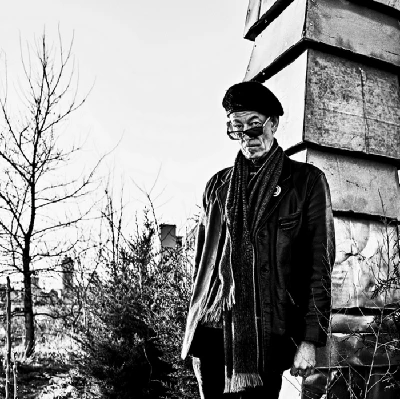
|
| Keith How talks to former Television Personalities and Swell Maps guitarist Jowe Head about his new solo album 'Widdershins', and is also given fascinating insights into his art and music. |
| Jowe Head: Interview (2019) |
| TexasBob Juarez: Interview (2016) |
| Rapid Results College: Interview (2016) |
Pennyblackmusic Regular Contributors
Adrian Janes
Amanda J. Window
Andrew Twambley
Anthony Dhanendran
Benjamin Howarth
Cila Warncke
Daniel Cressey
Darren Aston
Dastardly
Dave Goodwin
Denzil Watson
Dominic B. Simpson
Eoghan Lyng
Fiona Hutchings
Harry Sherriff
Helen Tipping
Jamie Rowland
John Clarkson
Julie Cruickshank
Kimberly Bright
Lisa Torem
Maarten Schiethart